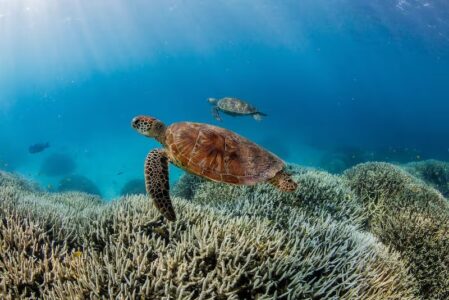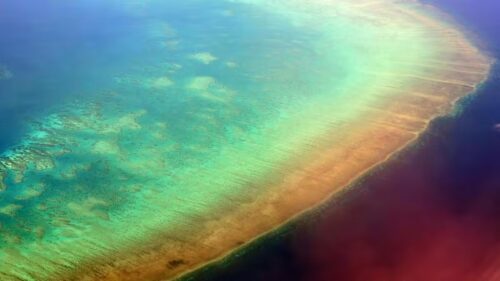Global wildlife populations have fallen over the past five decades, with human activity pushing the world towards a series of dangerous tipping points, which could see the Amazon rainforest decline until “we’re just left with scrub”, conservationists have warned.
The latest edition of WWF’s Living Planet Index, compiled by the Zoological Society of London, warns that monitored global populations of amphibians, birds, fish, mammals and reptiles have seen an average fall of 73 per cent in 50 years. Freshwater populations have suffered the heaviest declines, falling by 85 per cent, followed by a 69 per cent decrease in animals living on land and a 56 per cent reduction in marine creatures.
The declines, which have been driven by human activities such as habitat destruction for food production, are now being compounded by climate change. “In the natural world, a number of tipping points are highly likely if current trends are left to continue, with potentially catastrophic consequences,” warns the report.

These tipping points include the mass die-off of corals, which would destroy fisheries and storm protection for millions of people in coastal communities, and the melting of the Greenland and West Antarctic ice sheets, which would unleash many metres of sea level rise. In the Amazon, deforestation and climate change could soon lead to a point where it is no longer suitable for tropical rainforest, causing a tipping point which would emit large amounts of carbon and alter global weather patterns.
The report, released ahead of next month’s Cop29 meeting on climate in Azerbaijan, forms part of WWF’s latest Living Planet report, which calls for urgent action to transform food production, energy and finance systems that lie behind the declines in nature – on which humanity depends for its survival.
The Living Planet Index, which draws on data from 35,000 population trends and 5,495 species, shows that Latin America and the Caribbean have seen the fastest declines in wildlife, with average wildlife populations dropping 95 per cent in 50 years. While declines have been less in Europe and North America, this reflects that large-scale effects on nature had already taken place before 1970 in those parts of the world, the report says.
Mike Barrett, WWF chief scientific adviser, called the 73 per cent wildlife decline “really shocking”. “It’s not just the Living Planet Index, all globally recognised indicators tell exactly the same stories, whether we’re talking about population abundance, about species diversity, extinction rates, or the extent and intactness of natural habitats, these all tell us that nature is in free fall,” he said.
The report highlights tumbling populations of creatures from nesting female hawksbill turtles in the Great Barrier Reef to Amazon pink river dolphins in Brazil. It also gives insight into some conservation bright spots, including increases in mountain gorillas in the Virunga mountains in East Africa, and the comeback of European Bison populations in central Europe. But it warns they are not enough amid widespread habitat destruction.
While governments have agreed to global goals to tackle climate change, halt and reverse declines in nature and support sustainable development, the report warns there is still a large gap between the finance and action needed and what is currently being delivered. What happens in the next five years will “determine the future of life on Earth”, it says.
It calls for an increase in and more effective protected areas, for moves to support the rights of indigenous and local communities caring for their land, and “nature-based solutions” such as agroforestry – integrating trees into farming – and restoring mangroves to cut emissions, improve nature and help people.
It also calls for scaling up nature-friendly farming, more plant-based diets and less meat and dairy in developed countries, reducing food waste and redirecting harmful subsidies to support sustainable agriculture. The energy system must be transformed to curb climate changes and finance must be redirected away from harmful activities towards those that support the global goals on nature, climate and development, it said.

In the UK, the WWF called for a Living Planet Act requiring the government to produce plans demonstrating how they manage Britain’s land and seas to meet climate, nature and food security commitments. WWF UK’s chief executive Tanya Steele warned that Britons were “inadvertently driving deforestation and nature loss through what we eat and through what we buy” in products imported from abroad.
“So beyond the butterflies and the wasps here at home, what’s happening in the Amazon, what is happening all around the world, we have to acknowledge that it may feel far away, but actually that nature loss is being driven by us and by other developed countries and it is on us to stop and look to protect and restore nature,” she said.
“Nature underpins, of course, everything – our societies, our economies, it provides the food we eat and the air we breathe. This report is a wake-up call. The need to protect and restore nature has never been more urgent.”




